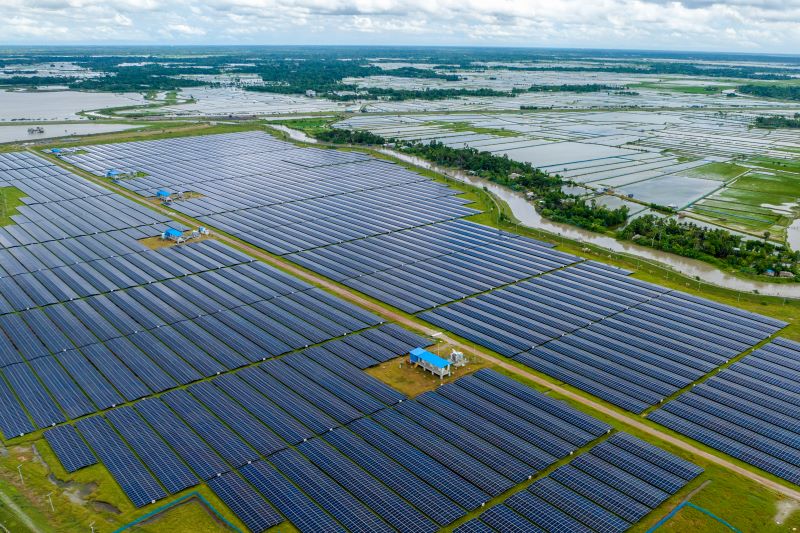Comment: With negotiations underway to establish a new global climate finance goal, wealthy countries are once again trying to shirk their responsibilities
Tasneem Essop is executive director of Climate Action Network International and Elizabeth Bast is executive director of Oil Change International.
Rich countries have a bill to pay. A study in the journal Nature says they will owe low- and middle-income countries an estimated $100 trillion-$200 trillion by 2050 since they have caused the climate crisis with their outsized emissions, while developing nations bear the brunt of the impacts.
As negotiators gather in Bonn this week to prepare for November’s COP29 climate summit, wealthy governments have to face the music and pay their fair share of climate finance. With low-income countries struggling with rising seas and spiralling unjust debts, the stakes have never been higher. The good news? Rich countries can deliver the funds needed for climate action. What is lacking is the political will, as usual. But we can change this.
At last year’s COP negotiations, world leaders recognised for the first time that all countries must “transition away from fossil fuels” in energy systems. This year they must agree on a new climate finance goal for 2025, which will set a new benchmark for the quantity and terms of the money owed.
Year after year, wealthy countries have failed to pay up. While transitioning away from fossil fuels is technically possible and relatively low-cost, the failure to finance transformative climate solutions like 100% renewable-ready grids, energy access, and programs to support workers and community transitions is one of the key remaining obstacles to tackling the climate crisis. Meanwhile, the lack of funding to adapt and respond to climate impacts means fires, droughts and floods are already bringing devastating consequences.
As UN Climate Change Executive Secretary Simon Stiell has said, “A quantum leap this year in climate finance is both essential and entirely achievable.” But, as negotiations have begun to establish a new global climate finance target, wealthy countries are once again trying to shirk their responsibilities.
Loans and ‘private-sector first’
They have come to the table with only tiny amounts of money. Worse, they argue it should be delivered mostly as loans, investments and guarantees – which they profit from, while climate vulnerable ‘recipient’ countries rack up debt. The US, Canada, UK and their peers claim that there is not enough public money to do anything else. Yet we know they can come up with enormous sums, like for COVID stimulus plans and for bailing out the banks.
Wealthy countries say the private sector can cover most of the costs instead. This ‘private sector first’ approach is particularly emphasized for energy finance. The idea is that all that is needed is a bit of public finance to ‘de-risk’ energy investments and attract much greater sums of private finance.
But as a former World Bank Director has argued, this approach has consistently delivered far less money than promised and “has injustice and inequality built in,” while reducing the role of government action for creating the right market conditions to deliver profits to investors. We need much more public funding to be delivered as grants for a fair energy transition.
Developing countries suggest rich nations tax arms, fashion and tech firms for climate
Rather than relying on the private sector, rich countries can afford the grants and highly concessional finance required for a fast, fair and full phase-out of fossil fuels, which societies and communities want. There is no shortage of public money available to fund climate action at home and abroad. Rather, a lot of it is currently going to the wrong things, like dirty fossil fuels, wars and the super-rich.
The lack of progress is also a symptom of a larger global financial system where a handful of Global North governments and corporations have near-full control. This unjust architecture results in a net $2 trillion a year outflow from low-income countries to high-income countries, historic levels of inequality and food insecurity, and record profits for oil and gas companies.
Make polluters pay
To raise the funds, wealthy governments can start by cutting off the flow of public money to fossil fuels and making polluters pay. The science is clear that there is no room for any new investments in oil, gas or coal infrastructure if we want to secure a live
Read More

